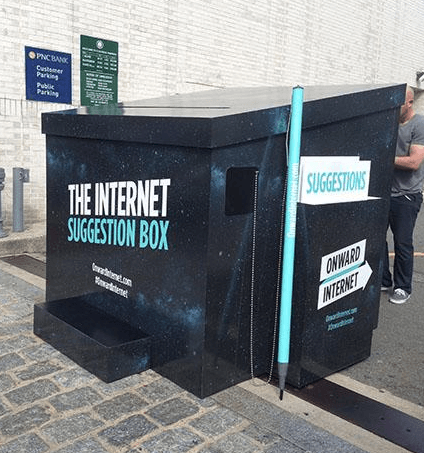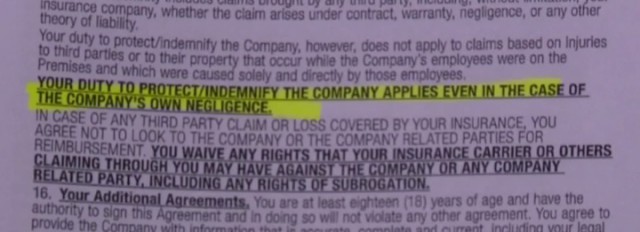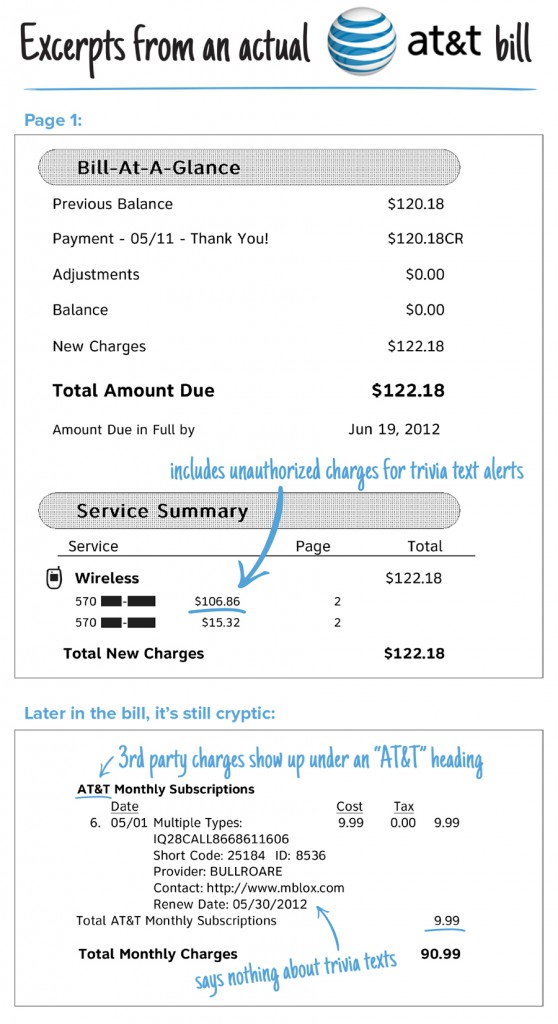 Love can be a fickle thing.
Love can be a fickle thing.
Take Comcast’s affair with J.D. Power & Associates, for example. In Comcast’s filings with regulators, it is very proud that J.D. Power cited Comcast for the most improvement of any cable operator scored by the survey firm. Comcast touted the fact it had managed to increase its TV satisfaction score by a whopping 92 points and Internet satisfaction was up a respectable 77 points. (Comcast didn’t mention the fact J.D. Power rates companies on a 1,000 point scale or that it took the cable company four years to eke out those improvements.)
Last month, J.D. Power issued its latest ranking of telecommunications companies and… well, the love is gone.
If customer alienation was an Olympic event, J.D. Power awarded tie gold medals to both Comcast and Time Warner Cable for their Kafkaesque race to the bottom.
The survey of customer satisfaction largely found only dissatisfaction everywhere in the country J.D. Power looked. While Comcast likes to cite its “customer-oopsies-gone-viral” blunders as “isolated incidents,” J.D. Power finds them epidemic nationwide.
 The highest rating across television and broadband categories achieved by either cable company was ‘Meh.’ J.D. Power diplomatically scored both cable companies on a scale that started with “among the best” as simply “the rest.” Customers in the west were the most charitable, those in the south and eastern U.S. indicated they were worked to their last nerve.
The highest rating across television and broadband categories achieved by either cable company was ‘Meh.’ J.D. Power diplomatically scored both cable companies on a scale that started with “among the best” as simply “the rest.” Customers in the west were the most charitable, those in the south and eastern U.S. indicated they were worked to their last nerve.
“The ability to provide a high-quality experience with all wireline services is paramount as performance and reliability is the most critical driver of overall satisfaction,” said Kirk Parsons, senior director of telecommunications, in a statement.
Having competition available from a high-scoring provider also demonstrates what is possible when a company actually tries to care about customer service. In the same regions Comcast fared about as popular as hemorrhagic fever, WOW! Cable and Verizon FiOS easily took top honors. Even AT&T U-verse scored far higher than either cable company, primarily because AT&T offers very aggressive promotional packages that include a lot for a comparatively low price.
Other cable and smaller phone companies didn’t do particularly well either. Frontier and CenturyLink both earned dismal scores and Charter Cable only managed modest improvement. The two satellite television companies did fine in customer satisfaction for television service, but it was the two biggest phone companies that managed the best scores for Internet service. Among cable operators, only independents like WOW! (and to a lesser extent Cox) did well in the survey.
If J.D. Power is the arbiter of good service Comcast seems to claim it to be, the ratings company just sent a very clear message that when it comes to merging Comcast and Time Warner Cable, anything multiplied by zero is still zero.
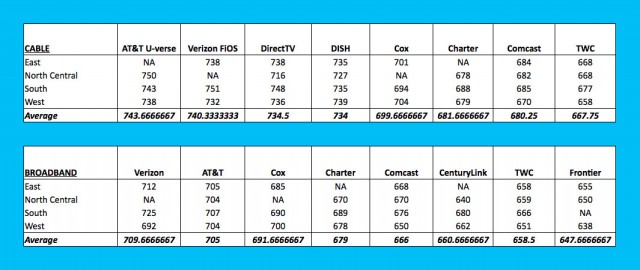
J.D. Power ranking (Image courtesy: Reviewed.com)


 Subscribe
Subscribe Earthlink customers in New York, Los Angeles and Austin are receiving letters from Time Warner Cable advising them they qualify for the same speeds Time Warner Cable broadband customers are receiving as part of the TWC Maxx upgrade program.
Earthlink customers in New York, Los Angeles and Austin are receiving letters from Time Warner Cable advising them they qualify for the same speeds Time Warner Cable broadband customers are receiving as part of the TWC Maxx upgrade program.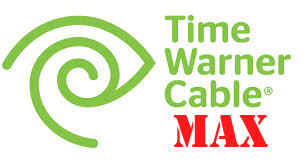 Stop the Cap! reader Iris was immediately suspicious about the tone of Time Warner’s letter, which has the potential of confusing customers that own their own cable modems. The letter suggests customer-owned equipment might not be compatible with the speed upgrades. Customers are given a phone number to verify their eligibility, and some who have contacted Time Warner Cable report back they have been given a brief sales pitch to ditch their own modem in favor of one from Time Warner Cable, which costs $5.99 a month forever.
Stop the Cap! reader Iris was immediately suspicious about the tone of Time Warner’s letter, which has the potential of confusing customers that own their own cable modems. The letter suggests customer-owned equipment might not be compatible with the speed upgrades. Customers are given a phone number to verify their eligibility, and some who have contacted Time Warner Cable report back they have been given a brief sales pitch to ditch their own modem in favor of one from Time Warner Cable, which costs $5.99 a month forever.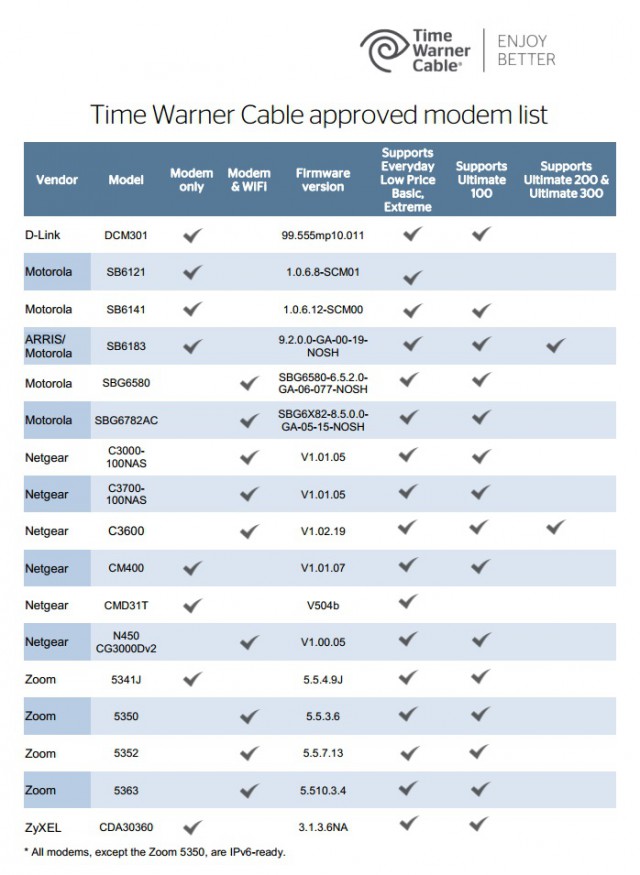
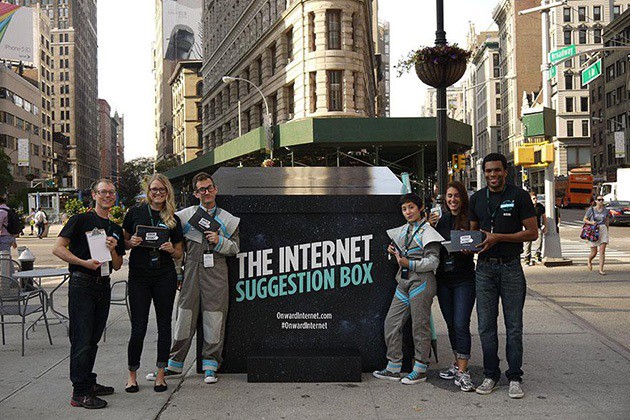 With millions at stake charging content producers extra for guaranteed fast lanes on the Internet, some lobbyists will go to almost any length to throw up roadblocks in opposition to Net Neutrality.
With millions at stake charging content producers extra for guaranteed fast lanes on the Internet, some lobbyists will go to almost any length to throw up roadblocks in opposition to Net Neutrality.